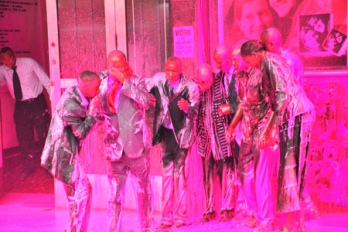Govts increasing internet blockage – warns UN
By John Stephen Katende
6th June 2011:
An independent United Nations expert on freedom of expression has warned that governments are increasingly restricting the flow of information on the Internet due to its potential to mobilize people to challenge the status quo.
Frank La Rue, a Special Rapporteur on freedom of expression, told the UN Human Rights Council in Geneva on 3rd June that, “…governments are using increasingly sophisticated technologies to block content, and to monitor and identify activists and critics. In recent months, we have seen a growing movement of people around the world who are advocating for change – for justice, equality, accountability of the powerful and better respect for human rights”, Mr. La Rue said.
Mr. La Rue added that the unique features of the internet which allow individuals and groups of individuals to spread information instantly, to organize themselves, and to inform the world about situations of injustice and inequality have also created an unhealthy climate of fear among governments and the powerful men and women in those governments.
“…Legitimate expression continues to be criminalized in many States, illustrated by the fact that in 2010, more than 100 bloggers were imprisoned. There should be as little restriction as possible to the flow of information via the internet, except in a few, very exceptional, and limited circumstances prescribed by international human rights law”, Mr. La Rue concluded.
In her recent article “Iraqi freedoms threatened by internet restrictions”, IWPR’s Senior Editor in Bagdad Abeer Mohammed said: “…inspired by the uprisings in North Africa, Iraqi bloggers, activists and youth organised protests earlier this year using social networking sites. However, many of the organisers were arrested and detained. This was a violation not just of the right of citizens to protest but also an infringement of their right to use the internet”.
Georgian President Mikheil Saakashvili, who is facing stiff Tunisian/Egypt style protests from pro-reform democracy activists, is reported to have installed one of the most sophisticated and restrictive internet censorship systems in the world. China and Iran are the other countries with similar internet censorship mechanisms.
Closer to home, many ‘Activists for Change’ [A4C] members complained on their facebook forum last week that some of their messages were being blocked by Museveni’s operatives operating online to stifle the growing dissent to his 25 year rule. END. Please login to www.ugandacorrespondent.com every Monday to read our top stories and anytime mid-week for our news updates.
![]()


